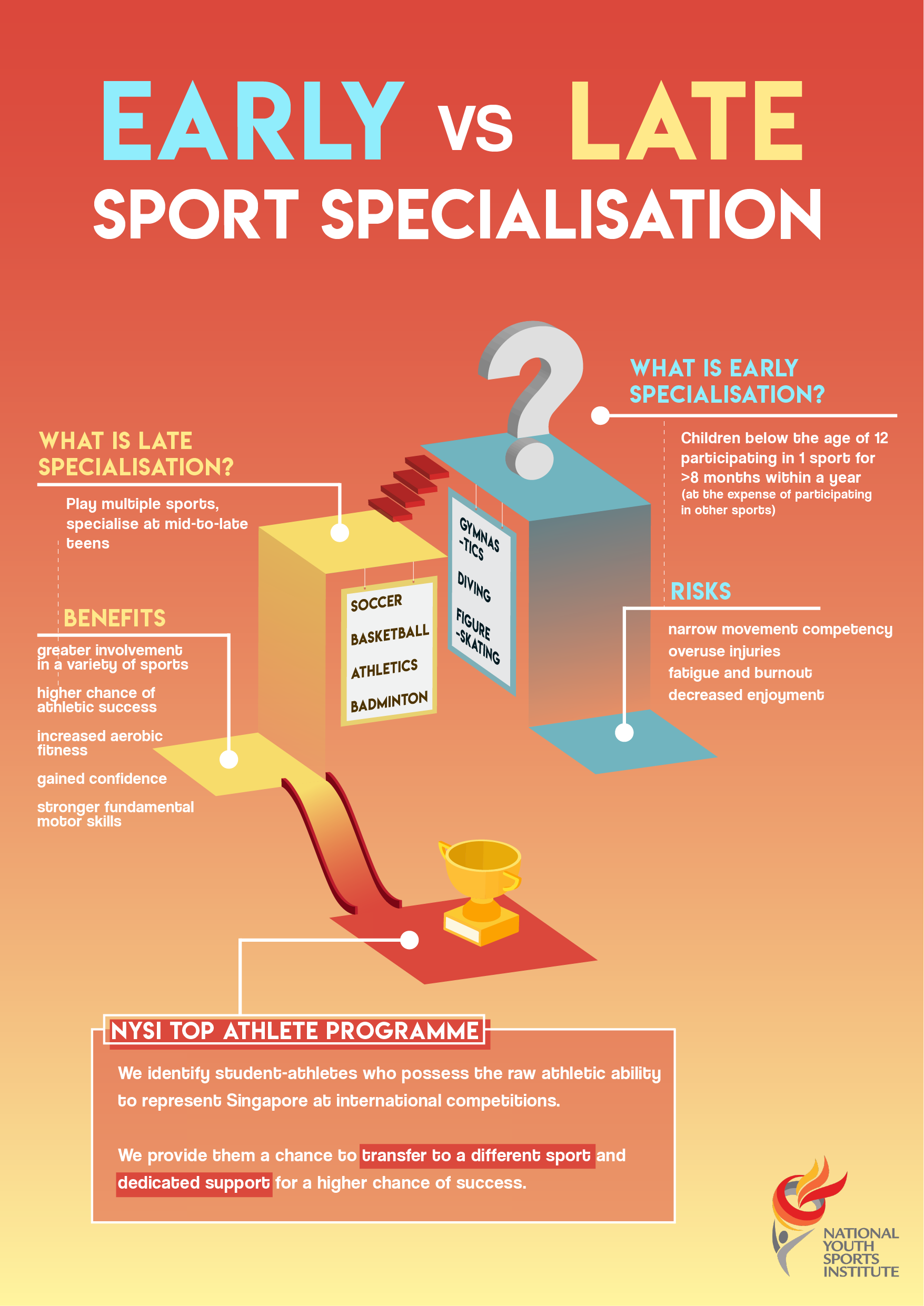Benefits of playing multiple sports for youth athletes
On 23rd of July, Miss Priscilla Ang submitted a letter that was published on The Straits Times' forum page. She shared her view that children should be given the chance to try different sports in order to groom better athletes. In response to this letter, Matthew Wylde, NYSI’s Head for Performance Pathway and Talent Identification, Development and Selection, talked about what early specialisation is, how it affects a student athlete, and the benefits of not specialising in a single sport too early.
Read Miss Ang’s original letter here: Let children try different sports to groom better athletes
Read NYSI’s response letter here: Playing multiple sports more beneficial for young children
Watch NYSI's response video here: XAAiOert4WY

Read Miss Ang’s original letter here: Let children try different sports to groom better athletes
Some children in Singapore are made to specialise in one sport as early as four or five years old as sporting achievement is often seen as a passport to an elite secondary school. With so much time and money invested in one sport, the expectations can be high. On top of the gruelling sports training, the child is expected to do well academically too. In the US, sports engagement is more loosely structured. The focus is on a player's overall athletic ability and well-being. Children there are encouraged to take on a variety of sports. They rarely specialise in one sport at a very young age. There are benefits to this. It reduces repetitive strain injuries specific to one sport. It trains up different areas of the body, making the child a more versatile athlete. And it reduces the stress to excel in one sport.
Take, for instance, the US women soccer team, this year's Fifa Women's World Cup champions. Striker Christen Press, now 30, played tennis and did track sports in high school. Team co-captain Alex Morgan, 30, played volleyball, softball and basketball, and did track before specialising in soccer. Meanwhile, Swiss tennis giant Roger Federer, 37, credits his hand-eye coordination to the wide range of sports he played as a child, including badminton and basketball. Their success stories make me want to encourage my children to try various sports. Sports is not a zero-sum game. It does not end when one stops playing a particular sport. Instead, one gains a foundation for another sport or a character trait for life.
We need to reconsider the race to always be the best.
Priscilla Ang Ee Lin
Read NYSI’s response letter here:
I thank Ms Priscilla Ang Ee Lin for highlighting the international athletes who played multiple sports at a young age. In Singapore, many of our successful athletes have also benefited from multi-sport exposure during their developmental years. There is scientific evidence to show that successful elite athletes in most sports specialised at a later age and trained less in childhood. In addition, children who play multiple sports between the ages of six and 12 develop stronger fundamental motor skills, aerobic fitness and confidence. Children who specialise in a single sport before the age of 12 are more likely to undergo a high volume of training, and are more susceptible to burnout and overuse injuries. Studies show that those who participate in sports more hours per week than their age, or train intensely for more than 16 hours a week, should be monitored closely to mitigate the risk of overuse injury.
There are some sports where early specialisation is acceptable during pre-adolescent stages because peak performance takes place in the teenage years. These sports include gymnastics, diving and figure skating. However, the majority of sports are classified as "late specialisation", including athletics, badminton and team sports such as basketball and football. The Junior Sports Academy programme, developed by the Ministry of Education in collaboration with the National Youth Sports Institute (NYSI), is based on the principle that playing multiple sports is more beneficial for young children. The programme enables about 1,600 Primary 4 to 6 pupils to play four sports over a two-year period before they choose their co-curricular activity in secondary school. Outside of school sports, the ActiveSG academies and clubs also provide children with the opportunity to participate in a diverse range of sports and physical activities.
The NYSI also provides support to high-performing youth athletes who specialise later or choose to switch sports. Our aim is to help these athletes maximise their potential so that they can go on to excel for Singapore at major games and international competitions. Youth athletes can take varied developmental pathways. Hence, it is important to give them the opportunity to develop at their own pace, and in their sport of choice.
Matthew Wylde
Head for Performance Pathways and Talent Identification, Development and Selection
National Youth Sports Institute
Watch NYSI's response video here: XAAiOert4WY
